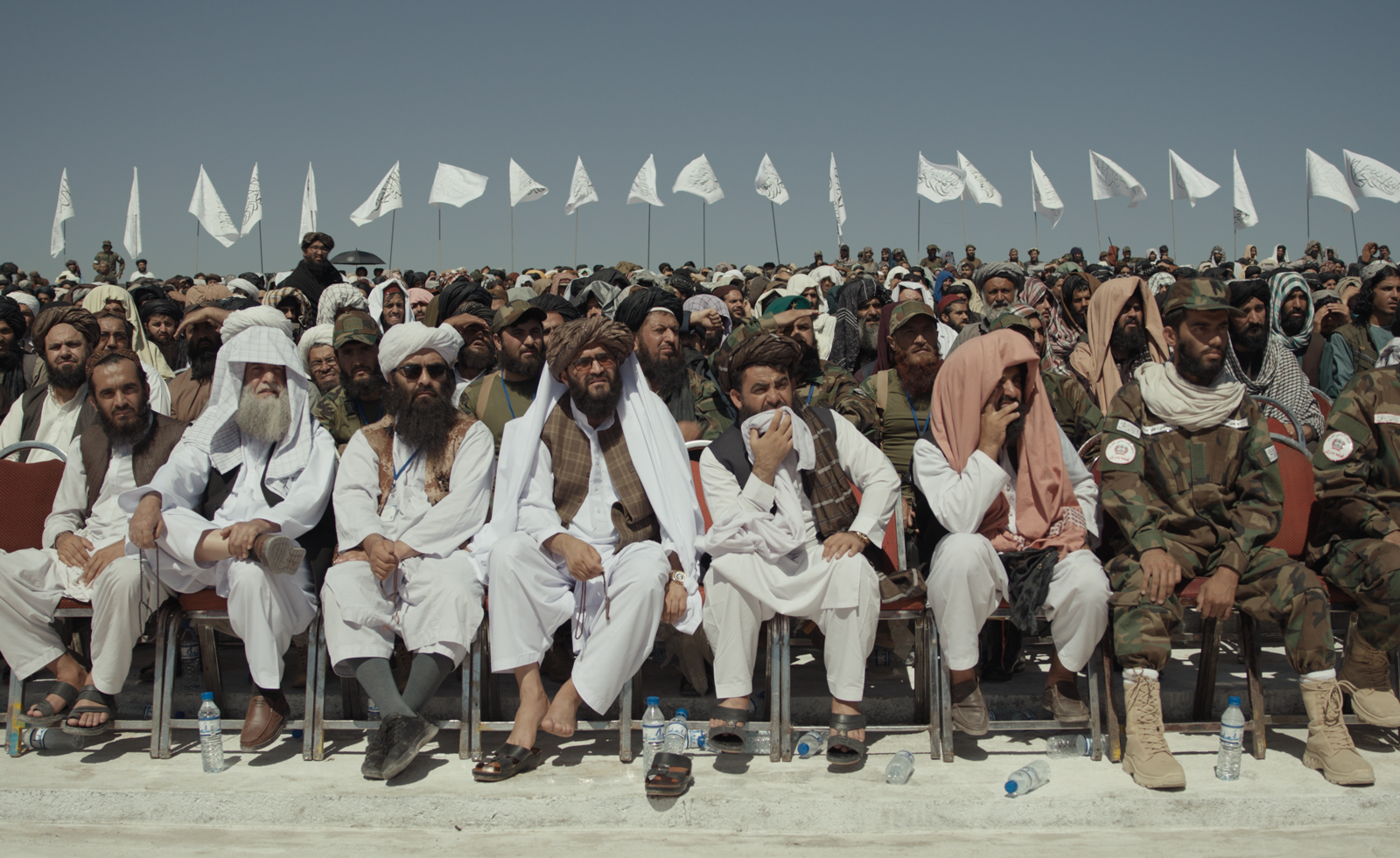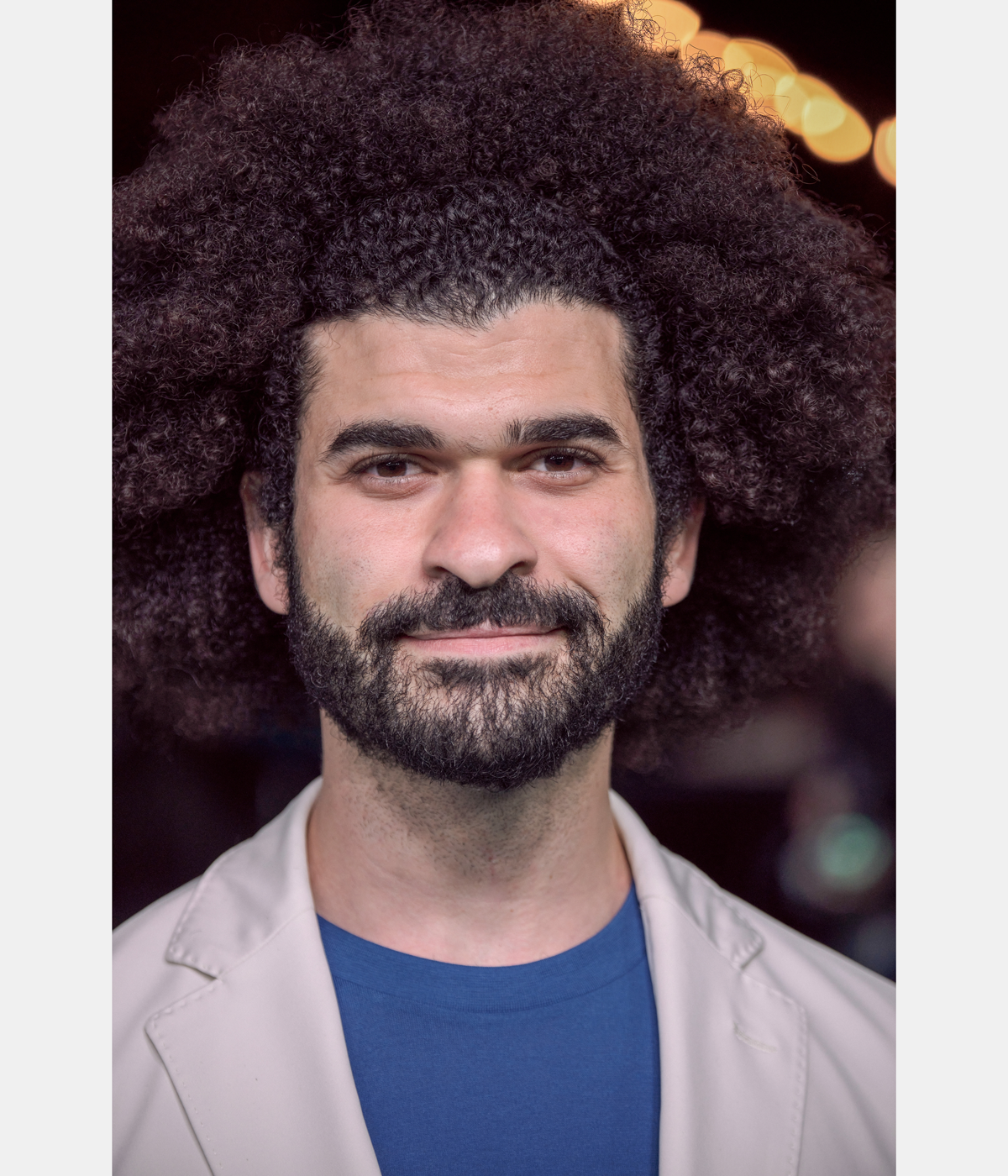New film, Hollywoodgate, finds out what really happened when the US left Afghanistan
Filmmaker Ibrahim Nash’at’s Hollywoodgate follows Taliban soldier MJ Mukhtar and air force commander Mawlawi Mansour in the aftermath of America’s withdrawal in August 2021

Receive our daily digest of inspiration, escapism and design stories from around the world direct to your inbox.
You are now subscribed
Your newsletter sign-up was successful
Want to add more newsletters?

Daily (Mon-Sun)
Daily Digest
Sign up for global news and reviews, a Wallpaper* take on architecture, design, art & culture, fashion & beauty, travel, tech, watches & jewellery and more.

Monthly, coming soon
The Rundown
A design-minded take on the world of style from Wallpaper* fashion features editor Jack Moss, from global runway shows to insider news and emerging trends.

Monthly, coming soon
The Design File
A closer look at the people and places shaping design, from inspiring interiors to exceptional products, in an expert edit by Wallpaper* global design director Hugo Macdonald.
Between 1996 and 2001, following the Taliban’s seizing of control after two decades characterised by warfare, a decree was imposed in Afghanistan banning all still and moving images of living things (namely people and animals). With the necessity of ID cards arrived a modification of the rule, exploited by some Taliban soldiers who took to studio backrooms to pose for high colour portraits against decorative scenes, as per the found photographs of Taliban, Magnum photographer Thomas Dworzak’s series first published in 2003.
In Egyptian filmmaker Ibrahim Nash’at’s Hollywoodgate, a new documentary following Taliban soldier MJ Mukhtar and air force commander Mawlawi Mansour in the aftermath of America’s withdrawal in August 2021, this turbulent relationship is subtly revisited. First via archive footage, in which masses of rolls of negatives are destroyed in an opening scene, and later in Mansour’s office, when a grand portrait is affixed behind his desk. Elsewhere, an official looking photographer features amongst the pair’s gun-wielding posse as they march around the former US base that gives the film its name; later, several camera phones are directed at soldiers in training.
‘One of the reasons this movie is called Hollywoodgate, is for the fact that the Taliban not only inherited from the US these weapons they are fixing [an estimated $7 billion worth of military equipment was left behind in 2021], but also Hollywood-style propaganda techniques,’ observes Nash’at, reflecting on this revised position on the virtue of such media. ‘The Taliban, in the past, said filming was forbidden, but today cameras are highly present and they use all of the propaganda techniques that were applied on them. It's this vicious cycle of using propaganda to try to convince everyone that you're right.’
Recalling the men’s response to his own apparatus – a handheld camera that, along with the assistance of a translator, was his sole tool for communication – he explains that it was ‘an artistic decision, to make sure the viewer saw them look into the camera. We wanted the viewer to feel and live in the place where the cameraman was, so you get that full experience of them interacting with the camera: you need to understand that they understand they are being filmed. And like when you point the camera at any human being, at any time, they perform.’

Filmmaker Ibrahim Nash’at
Initially intending to create a portrait for the world of exactly whose hands Afghanistan was left to three years ago, as he communicates in a voiceover early on in the film (clarified again during our call over Zoom), what Nash’at didn’t anticipate was his introduction to Hollywood Gate and the compound’s considerable stash of weapons and aircrafts, gym equipment and medicines, and the subsequent displays of megalomania this would inform, which ultimately shaped the film’s loose narrative.
‘I expected them to be the people who they claim to be, these representatives of the religion, but actually I didn't see that at all. I saw people who are mainly power hungry,’ he shares. Underscoring this is an otherwise quiet moment of downtime, which Nash’at perceived to be the most shocking scenario of all: while a group of soldiers watch the news, Mukhtar makes a gross comparison between women and chocolate. ‘On its own it’s a disgusting metaphor, but then he says, “I hope our new law, forcing women to wear the burqa on TV, does not contradict with Sharia law”, and you question if he actually knows what is he preaching. It really became clear then that what's at stake is power rather than anything else.’
A psychologically challenging project for which Nash’at spent seven months in the country over the course of a year, recording 220 hours of footage, the filmmaker says he’s been fascinated by the film’s early reception. Premiering out of competition at the Venice Film Festival in 2023, most recently it’s been screened at special events across the UK, ahead of the wide release on 16th August 2024. ‘On Monday we did a Q&A for 40 minutes, then went outside and stayed another hour talking with people. That says a lot about how people are interacting with the topic, and that's what we need, to have more people interacting,’ he asserts. ‘If the tool to make people focus on Afghans again is art and cinema, then that's what we're doing.’
Receive our daily digest of inspiration, escapism and design stories from around the world direct to your inbox.
‘It's a hard topic,’ he continues, ‘but in the end I’m trying to make art, using all of the tools of art to make an emotional movie, and working with a group of artists [including writer and producer Talal Derki], giving their best creative power. When we watched the last cut we all cried, because we felt we were able to deliver the pain of the Afghans, which was the core of our work. What the Taliban wanted from us was propaganda, and what we made was a movie about propaganda. The moment you do that, you take away the power of the propaganda that they are doing.’
Hollywoodgate is on wide release from 16 August 2024, including at the Curzon cinema
Zoe Whitfield is a London-based writer whose work spans contemporary culture, fashion, art and photography. She has written extensively for international titles including Interview, AnOther, i-D, Dazed and CNN Style, among others.